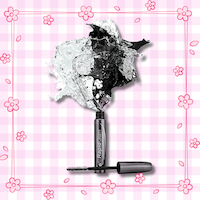HEALTH
Wellness
One girl on how she overcame her anxiety (and how you can, too!)

When I was in college, I was diagnosed with Generalized Anxiety Disorder (GAD). It had gotten to the point that if I made it out of bed to walk to class, I would have a panic attack in the middle of campus. I sort of felt it creeping up on me over the years as my uncontrollable and unrealistic worries worsened, but when I finally collapsed on the sidewalk during an attack, I knew I needed to get help. So I dragged myself to our counseling center. Nothing has ever caused me more anxiety than that.
Anxiety is a common feeling. In fact, anxiety disorders affect forty million adults in the United States. Persistent worrying that affects your ability to get through your daily activities may be a sign you have GAD. However, even if you have a panic attack, you might not have an anxiety disorder. But anxiety, no matter how severe, should be taken seriously. Here's what helped me keep my anxious thoughts from overtaking me.
Eat healthy.
I was not the role model for healthy living in college. My favorite food was microwavable Easy Mac and my workout was the fifteen minutes it took me to walk to class, and I typically didn’t get into bed until 2 a.m. or later every night. Healthy eating is paramount for both physical and mental health because the food you put in your body affects your nervous system.
The Department of Health and Human Services encourages us to have food goals that include eating more fruits and vegetables, more whole grains, different types of lean protein, less sodium and less sugar. I also suggest avoiding foods with large amounts of caffeine, junk food and additives like aspartame and high fructose corn syrup because they often contribute to anxiety.
Move your body.
Not only does physical activity prevent disease and keep your muscles toned, but it has also been linked to relieving anxiety and depression. When I was at my most anxious, my coping mechanism was to lay in bed for hours and binge watch Netflix. Unfortunately, my stagnant position was actually encouraging my disorder.
If you’re struggling to fit exercise into your day, I would suggest taking three 10 minute walks a day. As little as 30 minutes of exercise a day, even broken up in 10 minute increments, is full of health benefits.
Sleep on a schedule.
Nearly 80 percent of Americans have noticed that sleep deprivation leads to higher stress levels, which increases anxiety. Memory loss, poor motor skills, high blood pressure, heart attack, depression and a whole array of other problems can be severely improved or avoided with adequate sleep.
Sleeping on a schedule was imperative for me to get ahold of my anxiety. If you’re struggling with sleep issues, make sure you try to go to bed around the same time each night. Your body is habitual, and giving yourself a bedtime will help it fall asleep quicker and stay asleep longer. If you have to wake up at a certain time each morning, set a timer on your phone for seven to nine hours before to remind you to make sleep a priority.
Breathe deeply.
Taking a moment to breathe deeply can calm your anxious thoughts. When you mindfully control your oxygen intake, it triggers the hypothalamus in your brain to send stress relieving hormones throughout your body. Breathing exercises can be done from anywhere at any time. Controlling your breathing patterns can help you gain control of your anxiety. Practice breathing in through your nose, holding your breath and exhaling through your mouth for the best results.
Exercise mindfulness.
My counselor was an advocate for mindfulness activities. She would have me imagine myself standing in a river surrounded by trees with falling leaves. Every time a thought came into my head, I put it on a leaf and let it float down the river. It might sound crazy, but it helped me clear away some of my stress.
If you don’t want to imagine yourself in a river, relationship counselor Julienne Derichs suggests trying “the ‘Grounding 54321’ strategy—a technique that works by taking your focus off your anxious feelings and helps you to focus on your surroundings instead. The idea is to name five things you can see around you, four things you can feel, three things you can hear at the moment, two things you can smell and one thing good about yourself. You can find other mindfulness exercises online.
Connect with friends.
Avoiding people is one of my favorite activities when I’m stressed, but solitude creates a bleak environment for your anxious mind. I put off dealing with my GAD so long that I almost didn’t have anyone to talk to when I finally got help. Reaching out to connect with old friends and making new ones allowed me to share my stress with someone else. Even just unloading all of my daily thoughts onto someone helped me spend less time overthinking.
If you don’t feel like you can share with a friend, try sharing your thoughts with a diary. Writing down, videoing, recording voice memos and using other diary forms are a great way to vent as well.
Don’t avoid the issue.
Just like avoiding our friends, avoiding our issues is often a result of anxiety. Thai-An Truong from Lasting Change Therapy says, “One of the biggest reasons why we have debilitating anxiety is that we are running away from something that we need to face. Ask yourself, ‘What am I avoiding?’ The more you avoid it, the more it will come chasing after you. Once you face the monster, you’ll realize it has no teeth and will not eat you up.”
You can’t change your circumstances by avoiding them. If you let your anxiety build up over things you need to accomplish or problems you don’t want to face, it will only get worse. Facing your monsters head on can be scary, but once you do, it will release some of the tension.
Talk to a professional.
I was terrified to reach out to a counselor about my anxiety. Every time I had a meeting scheduled, I debated canceling it. But those thoughts were only adding to the problem. Counselors can help you navigate specific situations and show you skills to reduce anxiety in the moment. If nothing else is working, a counselor may be able to help.
If you’re suffering from anxiety, you’re not alone. I even had anxiety sharing this information with you. Luckily, there are ways to keep it in check. Make your health and happiness a priority and you’ll be able to handle more than you think.
Sarah Brown is a health and wellness writer out to encourage the world to find their happiness through the written word. In her spare time, she enjoys hiking with her dogs Daisy and Molly and writing music with her sister.
Do you struggle with anxiety or have you overcome it? Tell us in the comments below!
Like this? You'll love these, too...
+ Here's exactly what you need to know about summer flings
+ The beauty trends that will add some sizzle to your summer
+ How to love your body in a bathing suit
POSTED IN stress, dealing with anxiety, sleep, doctor, health, nutrition, mind/motivation, HEALTH, Wellness

 become a contributor
become a contributor













.png)




